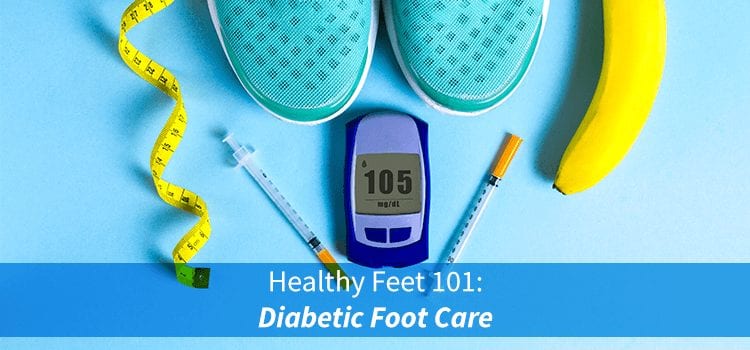Diabetes mellitus refers to several diseases that have negative effects on your body’s use of blood sugar (or glucose). Glucose is important for your health because it constitutes a vital source of cellular energy. Your cells, the “glucose consumers,” compose everything from your muscles to your organs. In addition, glucose serves as one of your brain’s main sources of fuel.
The underlying causes of diabetes vary as indicated by the type. That being said, no matter what type of diabetes you have, it will lead to excessive quantities of sugar in your blood. Needless to say, this can result in very serious health consequences.
Chronic forms of the disease include type 1 and type 2 diabetes. There are also reversible forms of the condition (prediabetes) in which your blood sugar levels are unnaturally high, but not high enough to be considered diabetes. Women can also develop gestational diabetes, which occurs during pregnancy. However, this condition usually resolves itself after the doctor delivers the baby.

How Do I Know if I Have Diabetes?
Symptoms of diabetes vary depending on how high your blood sugar levels rise. Some patients, especially those with type 2 diabetes or prediabetes may not exhibit any symptoms at first. This is the opposite of type 1 diabetes, in which symptoms tend to have a quick onset and prove more severe.
The following includes a list of diabetes symptoms that you should look out for:
- Hunger/Fatigue: When you eat food, your body converts this fuel into glucose that your cells then convert into energy. In order for this to happen, however, you need insulin to usher the glucose in. If your body does not produce enough insulin, then glucose cannot enter the cell. As a result, you will feel lethargic and confused.
- Frequent Urination/Unusual Thirst: Normally, the body reabsorbs glucose as it passes through the kidneys. With diabetes, however, as your blood sugar elevates, your kidneys cannot keep up. This leads to excessive urination, which in turn will make you thirstier.
- Dry Mouth/Itchy Skin: Because your body is undergoing excessive urination, there is less moisture available for other functions. This may make feel your mouth dry and your skin itchy.
- Blurred Vision: Unstable fluid levels in the body may make the lenses in your eyes swell. As a result, they change in shape and lose the ability to focus properly.
- Yeast Infections: Yeast feeds on glucose, which your body is not able to properly absorb when you have diabetes. The excess glucose levels in the body make yeast infections much more likely.
- Slow Healing Sores/Cuts: As time goes on, high blood sugar will affect your circulation, causing nerve damage. This makes it much harder for your body to heal wounds normally. In severe cases, diabetic foot ulcers may form, causing gangrene and leading to the need for limb amputation.

Diabetes: How to Care for Foot Problems
Diabetes may become dangerous for your feet. Even a small laceration may lead to serious ramifications. This is only exacerbated in cases where nerve damage exists, as the patient may be unable to feel these negative changes in their feet. Ideally, the best way to beat foot problems is to follow proper diabetic foot care. Here are some guidelines to follow if you have diabetes:
- Inspect your feet every day: Make sure to check for cuts, blisters, redness, swelling, or nail problems. Sometimes, it may help to use a tiny magnifying glass, as these problems may start out small.
- Bathe your feet: Keep your feet clean every day by washing them with lukewarm water. (Do not use hot water.) Make sure that when you wash your feet you do so very gently.
- Moisturize your feet: To discourage your skin from drying out or itching, you should moisturize them daily. Do not moisturize between the toes, however, as this may lead to a fungal infection.
- Cut your nails: Carefully clip your toenails straight across and file the edges. Be careful not to cut them too short, as this may lead to ingrown nails.
- Know when to see a doctor: Never try to treat corns or calluses on your own. Always visit your doctor to receive adequate treatment.
- Socks are important: Make sure that your socks are clean and dry. Change them daily. You may even want to look into socks that are specially designed for diabetic patients. These socks have extra cushioning, elastic tops, and fibers that wick moisture away from your skin.
- Don’t smoke: Smoking reduces blood circulation throughout the body, which can prolong wound recovery.
These are just a few general examples, however. In actuality, there are many steps that you can take to prevent and care for diabetic feet.
How to Prevent Foot Pain When You Have Diabetes
In addition to properly caring for your feet by keeping them clean, you may want to try to prevent foot pain altogether whenever possible. Making sure any small injuries, like cuts and blisters, are protected from infection and kept clean is a great way for many people to upkeep their bodily health.
We also recommend you see a doctor sooner, rather than later. Your medical practitioner will be able to make personalized recommendations and determine whether further actions should be taken in your case.
You can also prevent pain by taking insulin whenever necessary and keeping a careful eye on your blood sugar. Careful regiments for tracking your blood sugar and maintaining its appropriate levels can prevent several problems related to your diabetes. This can take some tweaking and spending a lot of time with your body, but can make a significant difference.
How is Diabetes Diagnosed?
Naturally, this depends on which type of diabetes your doctor suspects that you have. That being said, here are some more general examples of tests that doctors use to identify the condition:
- Glycated hemoglobin (A1C) test: This test will show your doctor your average blood sugar level for the past several months. Normal results are below 5.7 percent. Between 5.7 and 6.4 percent, the patient has prediabetes. Any higher than that, and you have the condition.
- Random blood sugar test: If you have a blood sample that shows your blood sugar level to be 200 mg/dL or higher, then it is likely that you have diabetes. This is especially so if you are already exhibiting classic symptoms of the condition.
- Fasting blood sugar test: In this case, a blood sample is taken after an overnight fast. In this test, a reading of less than 100 mg/DL is normal. Doctors consider anything between 100-125 mg/DL to be prediabetes.
- Oral glucose tolerance test: Doctors don’t really use this test often, but some may use it during pregnancy. For this test, you will fast overnight and then drink a sugary liquid the next time you see your doctor. At this point, your doctor will test your blood sugar levels over the next two hours. A reading less than 140 mg/dL is normal. If your reading shows up between 140-199 mg/dL, then you have prediabetes. Anything higher than that, and you have the condition.

Treatment for Diabetes
There are a number of different ways to help you manage your diabetes. Your doctor may administer the following treatments or recommend the following lifestyle changes:
- Weight loss: Losing weight may help lower the blood sugar levels in your body. In fact, losing just 5-10 percent of your weight might make a difference. That being said, the most ideal target would be around 7 percent or more of your initial weight.
- Healthy eating habits: There is no specific diet set for those with diabetes, but there are some general guidelines to follow. Try to eat food with fewer calories, carbohydrates, and saturated fats. In addition to this, try to eat more fruits and vegetables as well as foods with higher fiber content.
- Medication: Many patients with diabetes find that they can achieve their target blood sugar levels with diet and exercise alone, but not all cases allow for this to be feasible. Some patients will need diabetic medications or insulin therapy. Depending on the nature of your case, your doctor may give you medications such as metformin, meglitinides, sulfonylureas, and more.
These are just a few general treatment methods, however. Some patients may require bariatric surgery if their body mass index is greater than 35. Your doctor will be able to determine the best treatment route for you.
Contact Us
Are preventative measures to avoid diabetic foot problems not working well enough for you? If so, you should contact our practice at (855) 586-2615. Our team at NJ Spine and Orthopedic is comprised of passionate experts who care about your welfare as a patient. You can rest assured that they will put you on a care plan that suits your specific needs. Contact us today!

